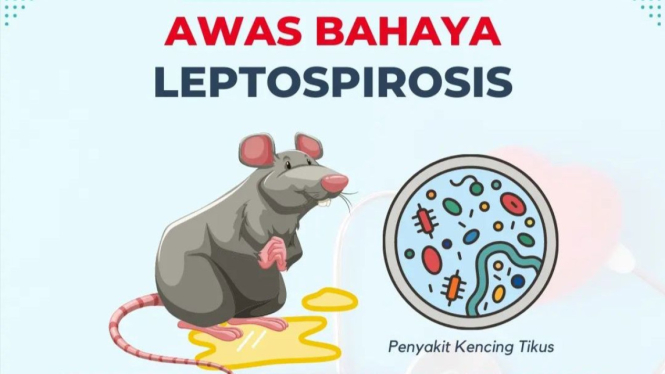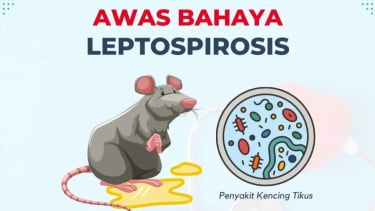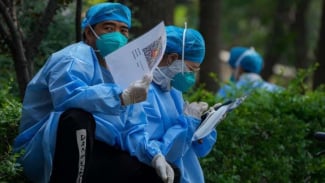Health Ministry Reveals Hundreds of People Affected by Leptospirosis
- IG @explore.bantul
VIVA – The Indonesian Health Ministry urges the public to be aware of leptospirosis which often happens in flood areas. Leptospirosis is a disease caused by leptospira bacteria that spreads through the urine or blood of infected animals, such as rats, cows, dogs, and pigs, health ministry stated.
"We need to be aware, especially during the rainy season and flood season, also be aware of Leptospirosis," Head of the Ministry of Health's Bureau of Communication and Public Services Siti Nadia Tarmizi said on Wednesday.
As information, Leptospirosis can spread through water and soil contaminated with the urine of animals carrying leptospira bacteria.
According to Tarmizi, as of December 2022 there were 1,408 cases of leptospirosis reported by provincial health offices to the Ministry of Health, 139 of which were confirmed dead, "Leptospirosis can also cause death although the number is small," she said.
Awas bahaya wabah Leptospirosis
- IG @sehatbareng.id
Several provinces with the highest case rate during the period included Central Java with 502 cases, 70 deaths, and a Case Fatality Rate (CFR) of 13.94.
Then East Java Province reached 401 cases, and 14 deaths, with a CFR of 3.49. Yogyakarta reached 235 cases, 13 deaths and CFR 5.53.
West Java Province ranged from 187 cases, 30 deaths, and CFR 16.04. Banten province 64 cases, 12 deaths, and CFR 18.75. DKI Jakarta province reported seven cases, zero deaths, and a CFR of 0.00.
"These are provinces that routinely detect and report leptospirosis cases. Not necessarily other provinces have zero, no cases. But maybe they are not reported," she said.
Some symptoms of leptospirosis appear two to four weeks after being infected with leptospira bacteria, in the form of fever, headache, nausea, vomiting, lack of appetite, diarrhea, red eyes, muscle pain, abdominal pain, and red spots on the skin that do not disappear when pressed.
Leptospirosis can be prevented by wearing personal protective equipment, such as gloves, boots, and eye protection when you work in areas at risk of transmitting leptospira bacteria.
Covering wounds with waterproof plasters, especially before contact with water in the wild. Avoiding direct contacts with contaminated water, such as swimming or bathing, and vaccinating pets or livestock.



























